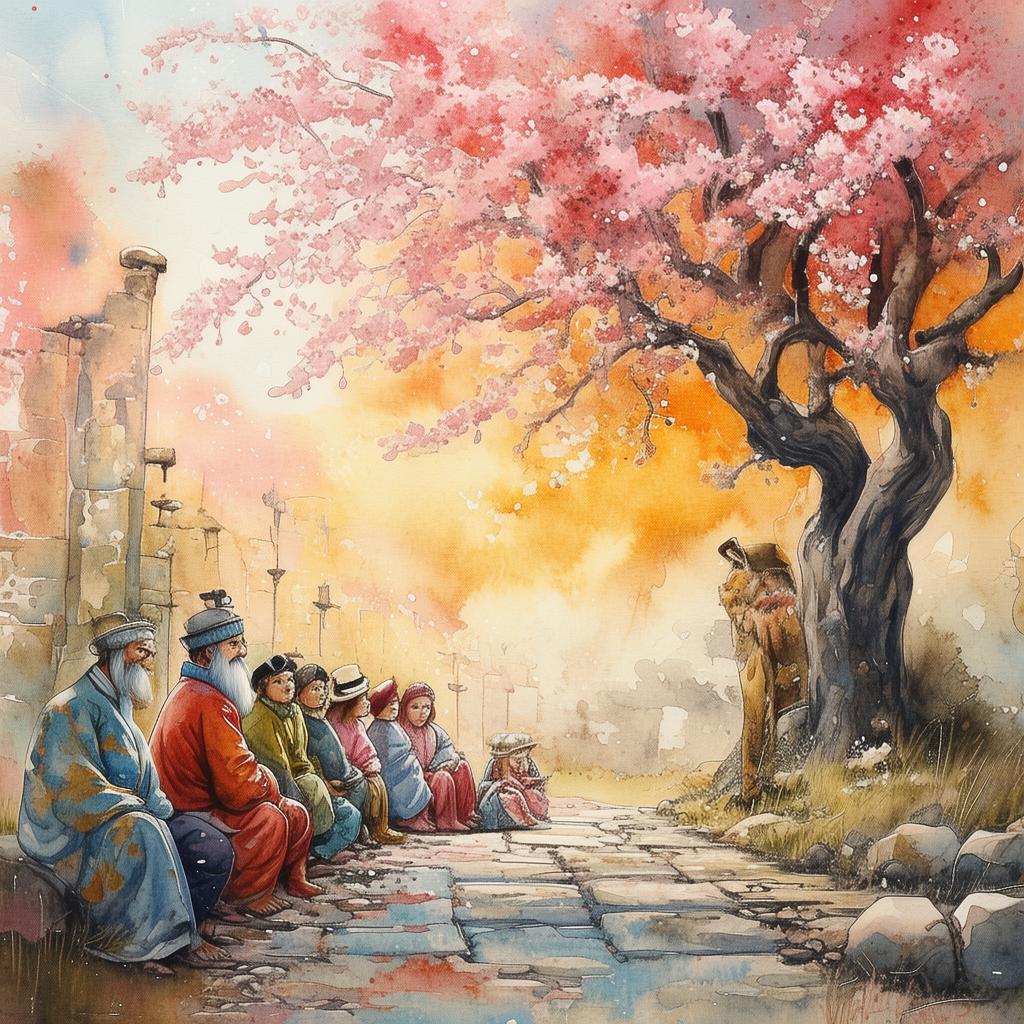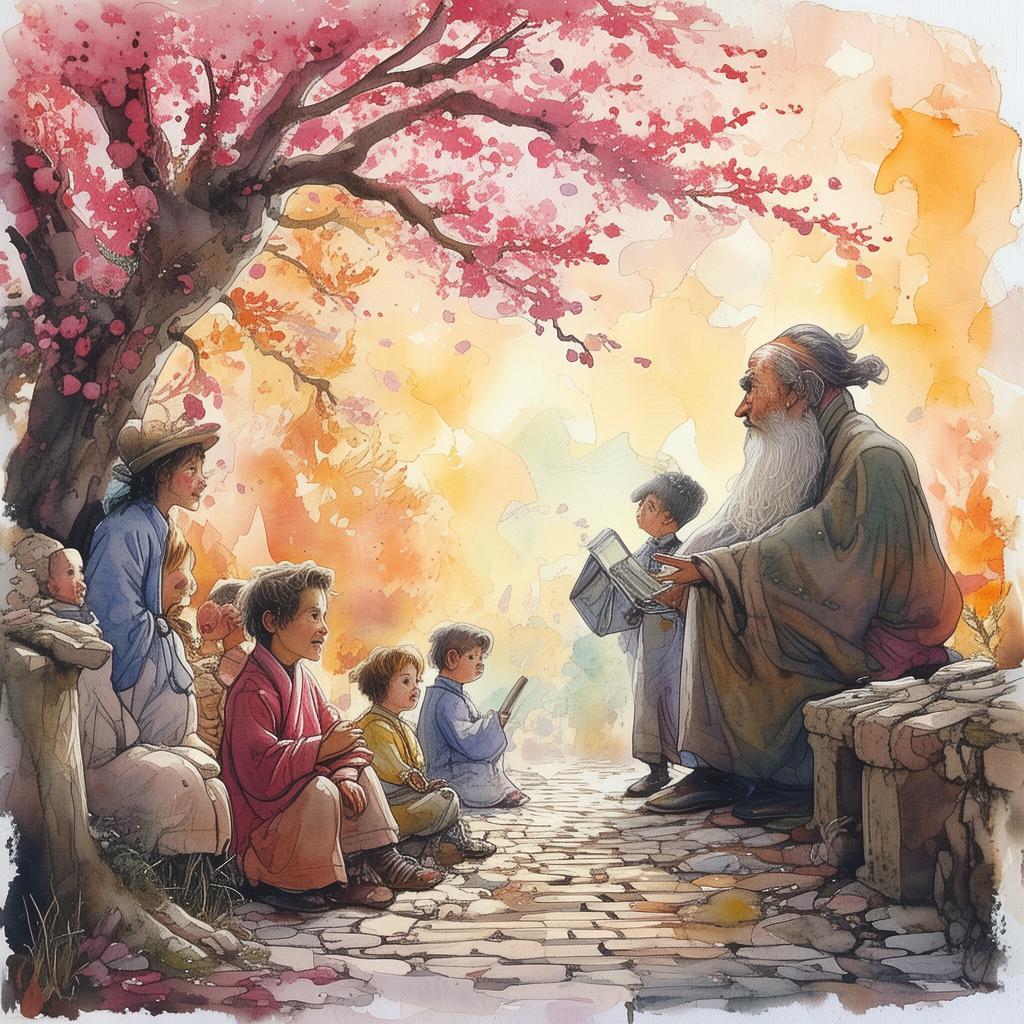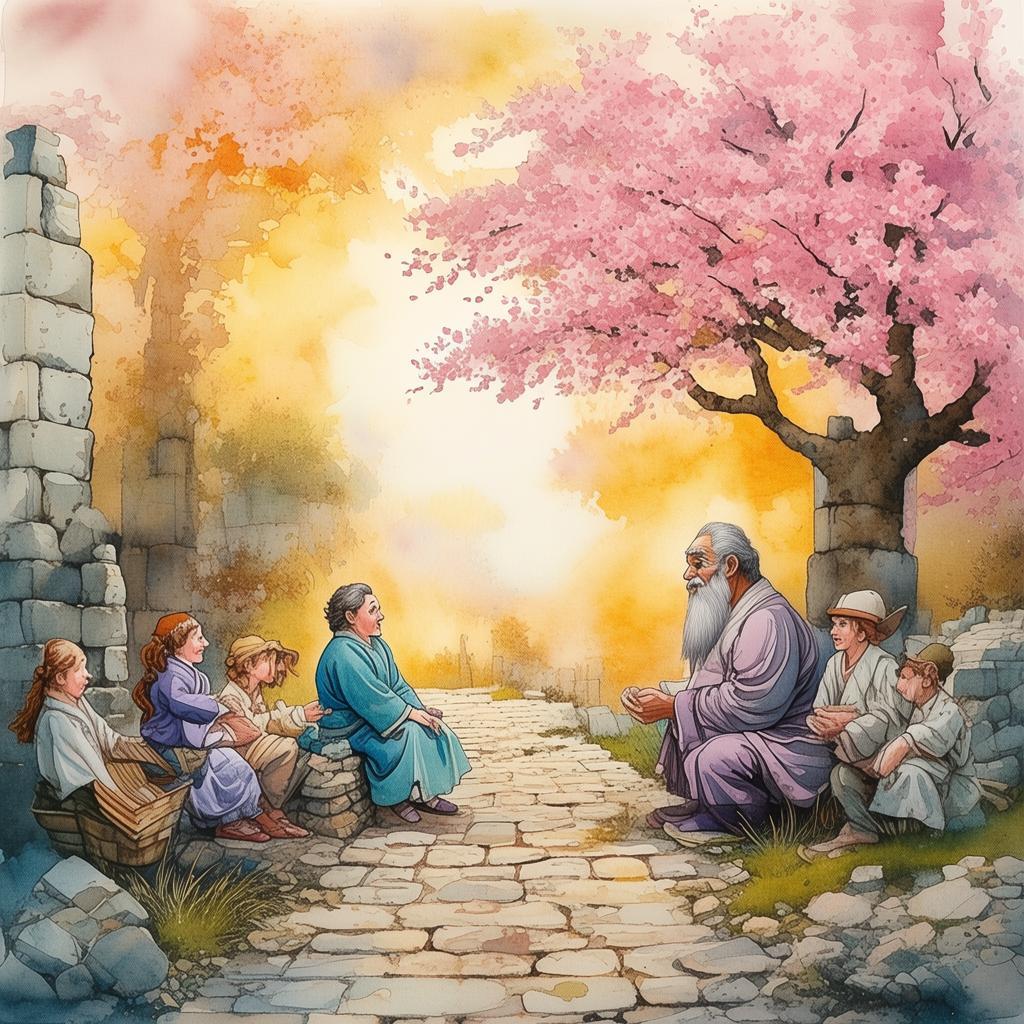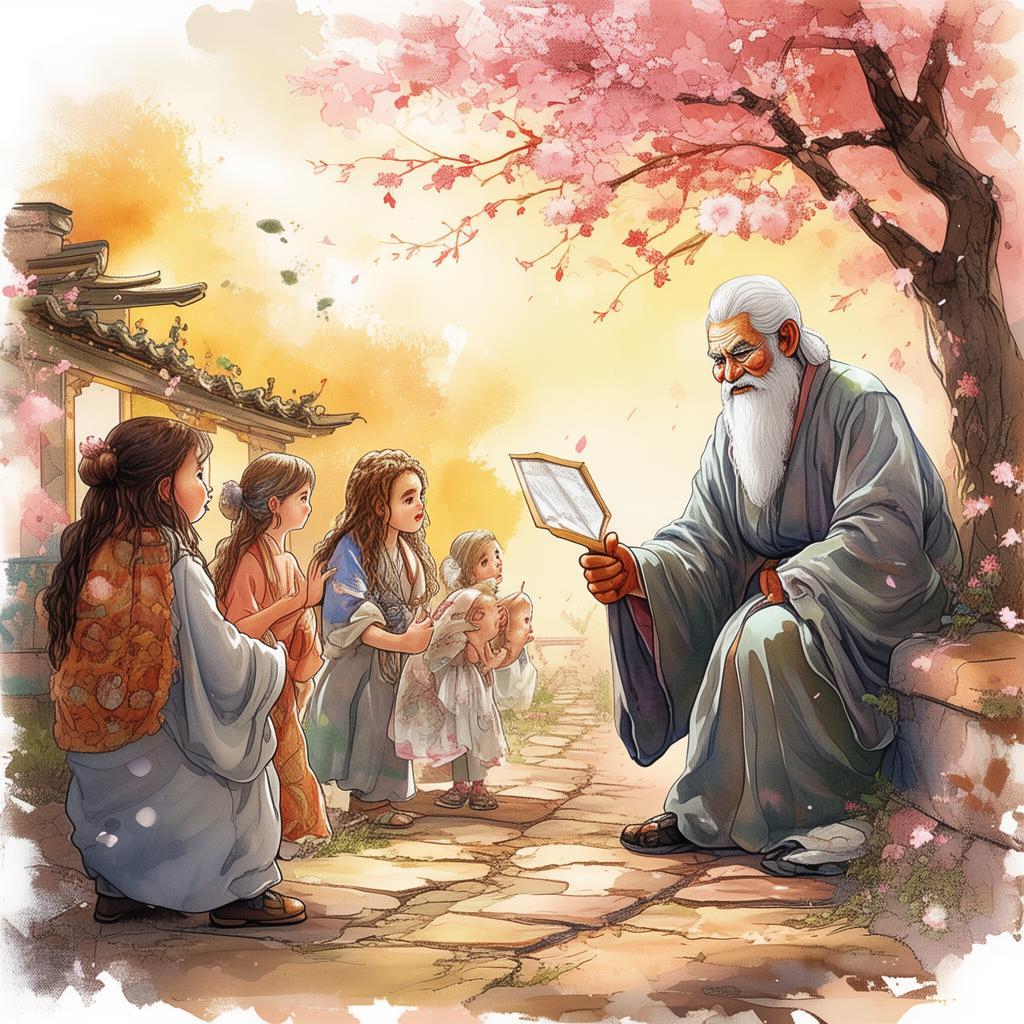The Gamblers' Chessboard of the Mind: A Game of Selves
In the bustling metropolis of Shanghai, there lived a man named Feng Ming, a successful lawyer with a seemingly perfect life. Yet, beneath the surface, Feng was a man at war with himself. His mind was a chessboard, and he was its king, surrounded by a multitude of pieces, each representing a different aspect of his identity.
Feng's story began on a quiet evening when he received a mysterious letter. It was an invitation to a game of chess, but not just any game. The invitation was from an anonymous figure known only as "The Chessmaster." The game was to be played not on a physical board, but within Feng's own mind.
The Chessmaster's first move was to introduce Feng to his inner selves. The first was a meticulous planner, always thinking several steps ahead. The second was a spontaneous dreamer, living for the moment and often ignoring the consequences. The third was a cunning strategist, willing to sacrifice others for his gain. And finally, there was the fourth, a silent observer, watching the chaos unfold with a sense of detachment.
As the game progressed, each self sought to assert its dominance over Feng's life. The planner was consumed by his desire for control, pushing Feng to take on more cases and amass wealth. The dreamer craved experiences and sought out adventures, often leading Feng into dangerous situations. The strategist was calculating and manipulative, using Feng's success to further his own ambitions. And the observer, while seemingly indifferent, often offered a chilling dose of reality that kept Feng grounded.
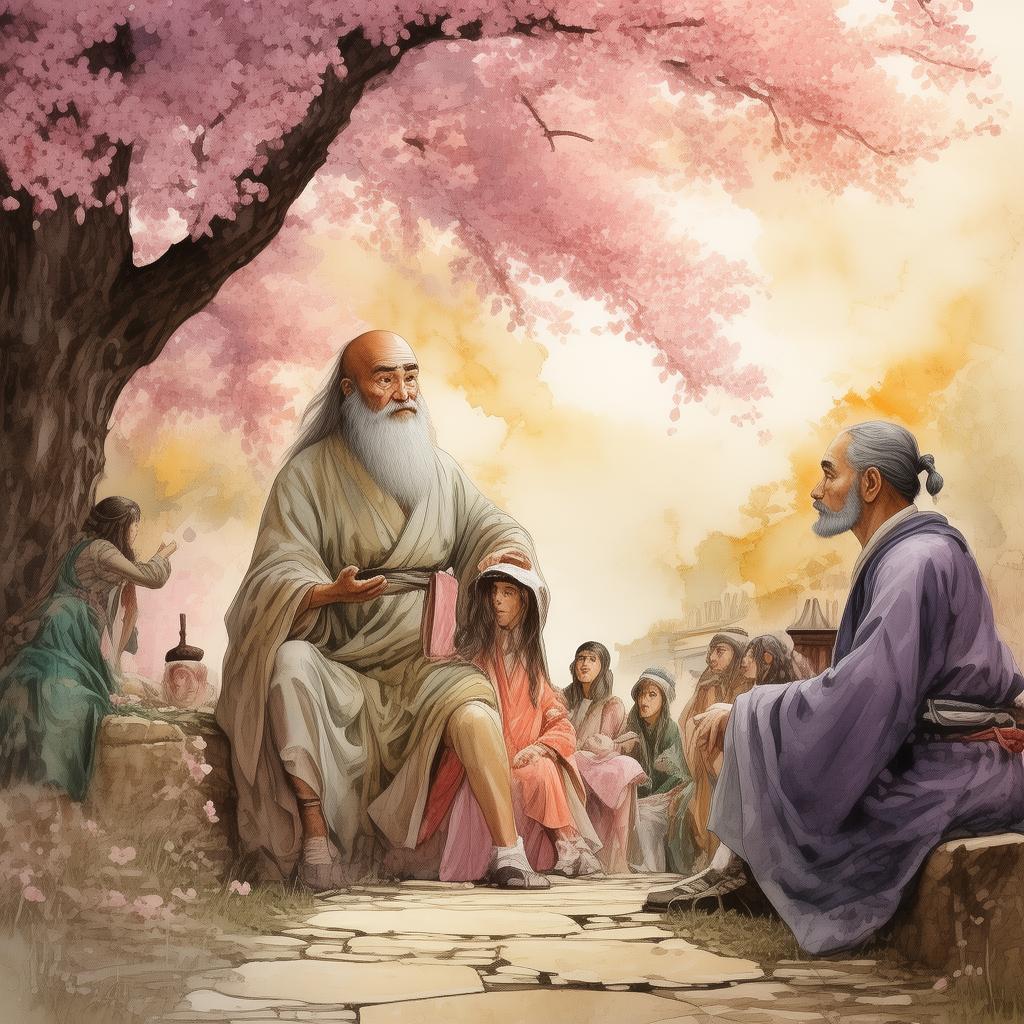
The conflict reached its peak when Feng was faced with a life-altering decision. A client had been charged with a crime he claimed he did not commit, and Feng was torn between his loyalty to the law and his moral obligation to help the innocent. Each self argued passionately, their voices echoing in Feng's mind like the clatter of chess pieces being moved.
As the tension mounted, the Chessmaster revealed himself. He was an old friend of Feng's, a man who had watched Feng's inner selves battle for years. The Chessmaster's intention was to help Feng understand the true nature of his mind and, in doing so, find peace within himself.
The game reached its climax when Feng realized that the only way to win was to accept all his selves, not as enemies, but as pieces of a greater whole. He learned to harness the strengths of each self and to understand the limitations of the others. In this realization, Feng found a newfound balance, a harmony that allowed him to live a life true to himself.
The final move of the game was a simple one. Feng sat back, taking in the quiet after the storm. He had won not by defeating his inner selves, but by uniting them. With this unity, he felt a sense of wholeness he had never known before.
The Chessmaster smiled and handed Feng a small, ornate box. "This is for you," he said. "It contains a piece of my mind, a piece of the wisdom I have gained from watching you."
Feng opened the box to find a single chess piece, a pawn. "This is a reminder," the Chessmaster said, "that even the smallest piece can have a significant impact on the game. Remember, the true power lies within you."
With the Chessmaster's words echoing in his mind, Feng walked away from the game, a new man. He had learned that the true battle was not with others, but with oneself. And with that knowledge, he was ready to face whatever life had in store for him.
The Gamblers' Chessboard of the Mind: A Game of Selves was a story of self-discovery, psychological intrigue, and the power of unity. It was a tale that resonated with readers, sparking discussions about the nature of identity and the importance of inner harmony.
✨ Original Statement ✨
All articles published on this website (including but not limited to text, images, videos, and other content) are original or authorized for reposting and are protected by relevant laws. Without the explicit written permission of this website, no individual or organization may copy, modify, repost, or use the content for commercial purposes.
If you need to quote or cooperate, please contact this site for authorization. We reserve the right to pursue legal responsibility for any unauthorized use.
Hereby declared.


